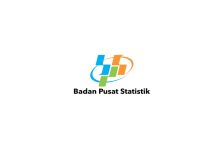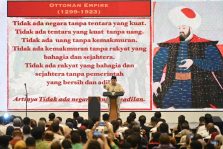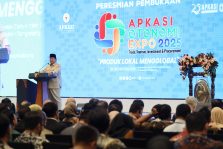Today, President Prabowo invited seven prominent journalists for an on-the-record conversation at his private library. Present were Lalumara Satriawangsa (TV One), Uni Lubis (IDN Times), Najwa Shihab (Narasi), Alfito Deanova (Trans), Valerina Daniel (TVRI), Sutta Dharmasuta (Kompas), and Retno Pinasti (SCTV).
During the nearly four-hour conversation, President Prabowo laid out one ground rule: everyone was free to ask anything on the record. No questions were submitted in advance to the President or his team.
Here are the key takeaways from the President’s answers to the seven final questions posed by the seven seasoned journalists, which will soon air on TV and YouTube:
1. What is the President’s stance on the 2025 Military Law, which critics say revives the dual-function role of the military reminiscent of the New Order era?
You can consult the historical record and see that I was part of the military (ABRI) that supported change and reform.
That’s why I will never betray reform. The core purpose of the 2025 Military Law is to extend the retirement age. It’s extremely difficult for the military to grow as an institution if we have to change commanders every few years due to age limits. There is no other agenda.
2. How do you respond to criticisms and protests over the 2025 Military Bill’s lack of transparency, and concerns that the upcoming Police Bill will be similarly opaque?
I understand that some members of the public are concerned because they read unofficial drafts and haven’t had access to the official one.
I will help ensure transparency in the Police Bill process, and make sure that official draft texts are regularly circulated for public review.
3. Your administration has been running for 150 days. On a scale from 1 to 10, what grade would you give yourself?
Meeting all of the people’s expectations quickly is no easy task.
I would give myself a 6 out of 10. A passing grade, because we have achieved many things. Food prices are stable. Rice production has reached its highest level in seven years. Fifty impactful policies have been launched, including the establishment of the National Development Bank (Danantara).
That said, there’s still a lot my administration can improve. Public communication needs to be better. Every government policy should be conveyed more clearly.
4. How would you assess the performance of the bureaucracy in your first 150 days?
Ultimately, an organization’s strength lies in placing the right people in the right positions at the right time.
In these first 150 days, we’ve shown that if someone can’t perform quickly or fails to serve the people effectively, we won’t hesitate to take action—even on a Saturday, we’ll convene shareholders’ meetings to make changes. The Minister of Agriculture has already dismissed more than a dozen officials who underperformed.
There are still many capable, talented young people who haven’t been given a chance to prove themselves. I will give them that chance.
Additionally, regulations such as Presidential Instructions, Presidential Decrees, and Government Regulations—which used to take months or even over a year to issue—have, in some cases, been finalized in just three weeks.
5. How would you evaluate the state of law enforcement under your administration?
We’ve proven that since October 20, 2024, major cases have come to light. Irregularities at Pertamina were exposed. Illegal land grabs for palm oil plantations were uncovered. The financial losses to the state revealed in the past 150 days exceed the total losses from the year 2000 to October 2024.
I’ve also received feedback from the Attorney General, who said many court processes stall because judges are not yet adequately compensated. So we’ve allocated Rp12 trillion to raise judges’ salaries. This was made possible thanks to our success in streamlining the national budget.
6. What is your response to public criticism about active military officers being assigned to state-owned enterprises (SOEs) and ministries?
Active military personnel cannot be placed in SOEs. Only retired military personnel may take such positions. Retired officers are civilians too. Once they’ve retired, there should be no dichotomy between military and non-military. They are all patriots with equal rights. For ministries, the appointments are limited to 14 institutions that have direct operational ties with the military.
Regarding personnel, we now need civil servants who are willing to work in challenging locations. Every military officer signs a contract agreeing to serve anywhere in the country. We are now applying the same standard to civil servants.
7. What is your stance on President Trump’s new tariffs, and how do you respond to the U.S. Department of Commerce’s criticism of Indonesia’s DHE (foreign exchange earnings) policy?
These tariffs will hurt labor-intensive export sectors like textiles and footwear. That’s why we need to negotiate—as a nation and as a regional bloc. This evening I’m flying to Kuala Lumpur to coordinate ASEAN’s response with Prime Minister Anwar. We’ve also dispatched our Coordinating Minister for Economic Affairs to the U.S. for direct negotiations.
We must respect America’s policies. We are friends with the U.S. As for the DHE policy, it seems they’ve misunderstood. We only require export proceeds to remain in Indonesia for entities that benefit from government support—such as credit from state-owned banks.
If a company operates independently in Indonesia using its own capital, or brings in funds from abroad, we don’t regulate their DHE. I think that’s fair.
But in the end, we must be self-reliant—able to stand on our own feet. I’ve talked about this for years. That’s why we’ve established Danantara.
As President, I don’t set targets for how much or where Danantara should invest. But I do stress the importance of thorough feasibility studies for all investment opportunities. Danantara must prioritize investments that deliver maximum impact and added value.
That’s why Danantara is under strict oversight—to ensure its investment policies benefit the people of Indonesia. Its projects must be sustainable and offer high added value. This, in turn, will naturally attract other stakeholders to get involved.


